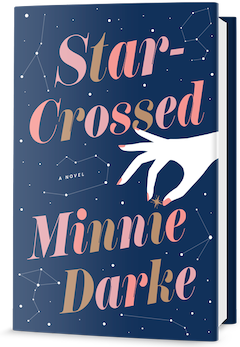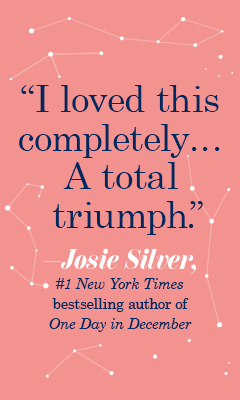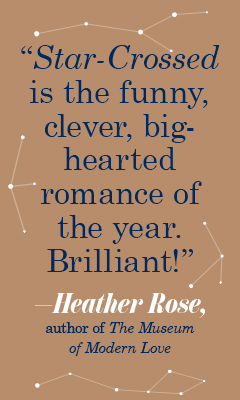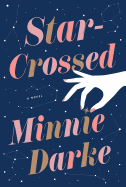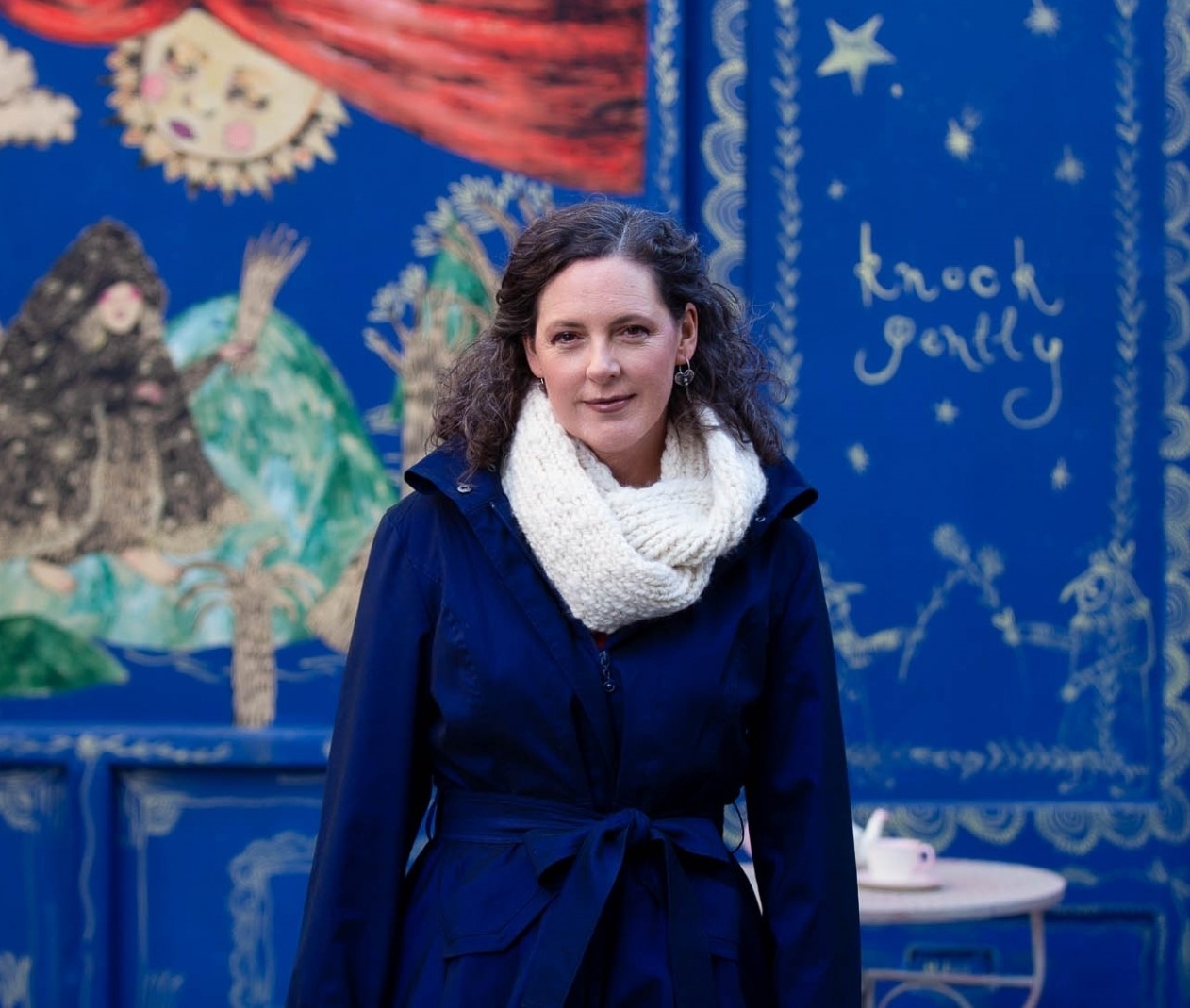Star-Crossed
by Minnie Darke
For thousands of years, human beings have watched the stars--to observe their beauty, to navigate across uncharted oceans, and (sometimes) to seek guidance for important decisions. But do the stars truly affect our lives? Does a person's zodiac sign determine his or her personality and fate, or are human beings the masters of our own destinies? Australian novelist Minnie Darke takes a playful approach to these questions--and the havoc that sometimes results from pursuing them--in her big-hearted and witty debut, aptly titled Star-Crossed.
Darke's novel centers on Justine (Sagittarius, possessed of a near-photographic memory, thoroughgoing star skeptic) and Nick (dreamy Aquarius, struggling actor, true believer). Born nine months apart to mothers who were best friends, the two spent their childhoods together, but lost touch after Nick's family moved across the country. Darke sets up this shared history in a few breezy chapters, then leaps ahead to when Justine's and Nick's orbits overlap again in their 20s. Now, Justine is an aspiring reporter at a quirky monthly magazine, the Alexandria Park Star. She's fetching coffee and making copies while hoping to climb the journalistic ladder. Meanwhile, Nick--despite scraping together the rent with acting gigs such as impersonating a large bell pepper--has just landed the lead role in a local avant-garde Shakespeare production (Romeo and Juliet, naturally). While he's delighted to see Justine, he also harbors a deep curiosity about Justine's co-worker, the reclusive astrologer Leo Thornbury, whose columns provide (Nick believes) spookily accurate guidance for his life. Peppered with amusing parenthetical asides and spot-on details like Justine's penchant for correcting misspelled produce signs ("advocados"), Darke's writing is both keen-eyed and just plain fun to read.
As the two reconnect and become friends, then neighbors, Justine teases Nick about his dedication to following Leo's advice. But when she's suddenly promoted (in accordance with her own horoscope) and her new responsibilities include typesetting Leo's columns (faxed from his remote island residence), Justine wonders if there's any harm in tweaking his advice, just a little. Her eventual decision to take (some) starry matters into her own hands will have a domino-like effect on not only Nick and his choices, but on the people--some known to him, some not--affected by his actions. Unbeknownst to either of them are the decisions of other Star readers who peruse, and sometimes follow, Leo's counsel for their own lives.
Darke charts her characters' movements, star-directed and otherwise, with warmth and compassion, playing with the stereotypes of various star signs but also allowing (some) characters to go beyond them. Justine's colleagues at the magazine, whose star signs are as varied as their personalities, are a quirky, entertaining crowd, except for her new boss, Daniel (a good-looking Leo), whose presence may spell trouble. The supporting casts in Justine's and Nick's personal lives are also engaging: their respective mothers; Justine's loudmouthed but good-hearted best friend Tara (a Taurus); Nick's sleek, driven, terrifyingly polished model girlfriend (a classic Capricorn). Readers will also find Justine and Nick utterly charming, especially when they banter across their balconies with the ease of long friendship spiked with new attraction, or when Justine engages in (slightly zany but completely relatable) mental arguments with herself.
As the planets and Darke's story continue to spin, she expertly connects various characters who are unknown to either Justine or Nick: a popular singer-songwriter searching for her next hit; a young male midwife hopelessly in love with a wealthy, divorced oncologist; a successful but lonely florist (perfectly named Fern). She skillfully reveals their feelings about the stars (ranging from near-reverence to amusement to total disregard) and the ways in which their lives are intertwined, whether they ever know it or not. Darke even pulls back the curtain briefly on the enigmatic Leo Thornbury himself, giving readers a glimpse of him typing his monthly column under (what else?) a glass ceiling showcasing the night sky.
While Star-Crossed is more than a simple love story, it's clear from the first pages that Darke always comes down on the side of love: familial, romantic, the bonds of true friendship. Many of her characters are either nursing broken hearts or hoping for the right person to come along, and quite a few of them get their happy endings--though not without some mischief and missed connections along the way.
Darke plays with profound questions of destiny and free will, but throws in highly entertaining moments such as the Star's elaborate Halloween bash, the adventures of a stray but savvy street terrier named Brown Houdini-Malarky, and an outdoor production of Romeo and Juliet (not Nick's) gone horribly wrong on New Year's Eve. Star-Crossed will not only keep readers engaged, but make them wonder about the interplay of destiny, decisions and pure luck (with a little stardust thrown in). Readers will perhaps agree with Nick and Daniel that Justine's "editing" of Leo's horoscopes was impulsive at best, but they may also find themselves concurring with Jeremy, Justine's kindhearted editor, that fortune does, in fact, favor the bold. --Katie Noah Gibson



